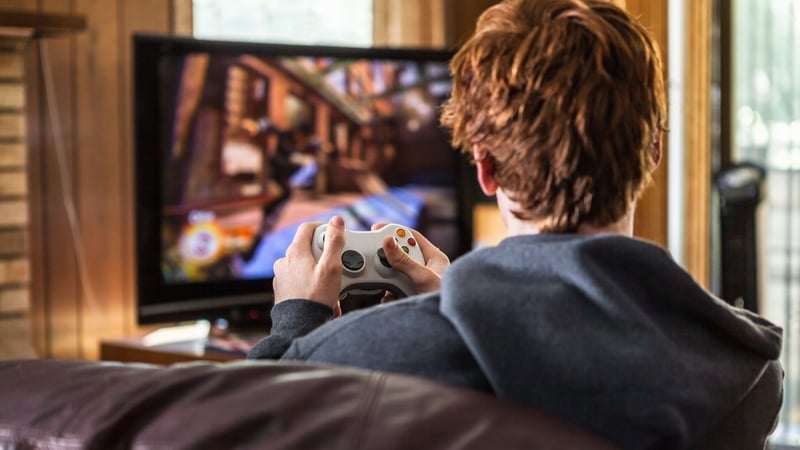Analysis: Researchers have found that videogames enable us to fulfil some of our psychological needs
The misconception that violent videogames cause aggression in children has persisted since the dawn of modern gaming. Decades of research has failed to find any real support for these concerns. Recent research has, in fact, revealed that even the most typically violent videogames can provide for therapeutic experiences.
“Gaming” is no longer a niche, easily-stereotyped hobby. Billions of people around the world are playing videogames. Mobile games are permeating the app market. Established game franchises like Minecraft and Sonic the Hedgehog are producing hit box office films. It’s safe to say that gaming has become mainstream. Naturally, our collective interest in videogames has caught the attention of researchers and clinicians. Their exploration of our gaming experiences has revealed that videogames enable us to fulfil some of our psychological needs.
Staying grounded
First-person shooter games (like Call of Duty or Halo) are hugely popular and intrinsically violent. These games do what they say on the tin: players experience all the action of combat-based gameplay from a first-person perspective, producing a highly immersive gaming experience. Beyond their appeal to a broad demographic of players, these games have been repeatedly reported by veterans as helpful in managing their combat trauma.
From RTÉ Radio 1’s Brendan O’Connor, ‘the Playstation changed the gaming landscape’
Research with US veterans returned from service in Iraq or Afghanistan found that combat-themed first-person shooter games helped veterans cope with returning to civilian life. Whether it was channelling their military training in a safe environment, or learning to manage physical symptoms of their combat trauma, the veterans clearly viewed these games as valuable therapeutic, recreational outlets. A similar, larger study also found that veterans were able to work through their military-related issues by reliving combat through videogames.
These studies also revealed the risk of veterans experiencing distressing flashbacks while gaming, or developing unhealthy gaming patterns. Balancing these risks with the very real benefits, it seems that guidance from experts (in gaming and psychotherapy) could prove extremely beneficial to people dealing with combat trauma.
Escaping reality
Veterans in the studies above also relished the simple joy of finessing skills and connecting socially with other gamers. For those who enjoy playing them, games are ultimately a fun way to spend time. They’re engaging, immersive, and allow us to escape the stress and strain of everyday life.
We need your consent to load this rte-player contentWe use rte-player to manage extra content that can set cookies on your device and collect data about your activity. Please review their details and accept them to load the content.Manage Preferences
From RTÉ Radio 1’s Drivetime, Prof. Mark Campbell from the University of Limerick on research showing the positive impacts of gaming
Research studies support the claim that moderate amounts of gaming improves mood, relieves stress and enables us to manage our emotions. In a recent review published in the Journal of Medical Internet Research: Mental Health, 26 studies directly compared gaming with other strategies to manage stress or anxiety. In 17 of these studies, gaming was found to be more effective at relieving stress or anxiety compared to guided relaxation, surfing the web, watching a film and even anxiety medication.
It’s also telling that we collectively increased the amount of time spent gaming during the pandemic. Granted, our entertainment options were limited, but testimonials from research show people used videogames as a way to escape reality, reduce distress and connect socially during lockdowns.
This can also be seen in the runaway popularity of certain games during the pandemic. Whether it was basking in the idyllic island life of Animal Crossing: New Horizons, adventuring through the vast and beautiful landscapes of Breath of the Wild or frantically interrogating your teammates to identify the impostor in Among Us, games provided us with refuge from the fear and anxiety that coloured every relentless day of the pandemic’s lockdown.
From Scripps News, how Animal Crossing became a quarantine cultural phenomenon
Using games in therapy
Using games in therapy is not a new concept. The idea that play allows children to express and process complex experiences has been around for nearly 100 years, and modern play therapy was formally established in the 1960s. Games from the Super Mario Bros., The Legend of Zelda and Lego Star Wars franchises have all been harnessed by therapists to help form connections with, and enhance the treatment of, young children.
One therapist report details how he treated a 10-year old boy primarily using videogames. The boy had previously suffered physical and verbal abuse, and his parents were concerned about his tendencies towards aggression, anxiety, depression and heavy gaming. The boy gamed extensively, favouring the Borderlands trilogy (a series of combat-focussed, first-person shooter games). Realising that the hero’s journey of these games was helping the boy process his own traumatic experiences, the therapist was able to guide the boy in relating his gaming experiences to the ‘heroic’ and ‘villainous’ behaviours of his real life.
From TEDxUCD, consultant psychologist John Francis Leader on combining what we have learnt from media and entertainment with an understanding of therapeutic psychology to assist us in leading healthier, happier lives
However, games (and their potential therapeutic benefit) are decidedly not just for kids anymore. In some ways, videogames render play therapy a more appealing treatment option for people of all ages. As one study argues, clients who might balk at a physical sand tray (a classic tool of traditional play therapy) could be tempted to explore and build in a sandbox game like Minecraft. ‘Sandbox’ describes a diverse genre of videogames where the main point is to explore and be creative; there are no fixed objectives or storylines to follow, players have total freedom to play as they please.
This is just one example of how games might be incorporated into therapy. As our technology use continues to evolve, videogames might provide a valuable pathway to levelling up our approach to psychological wellbeing.
Follow RTÉ Brainstorm on WhatsApp and Instagram for more stories and updates
The views expressed here are those of the author and do not represent or reflect the views of RTÉ




